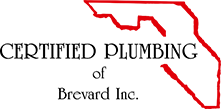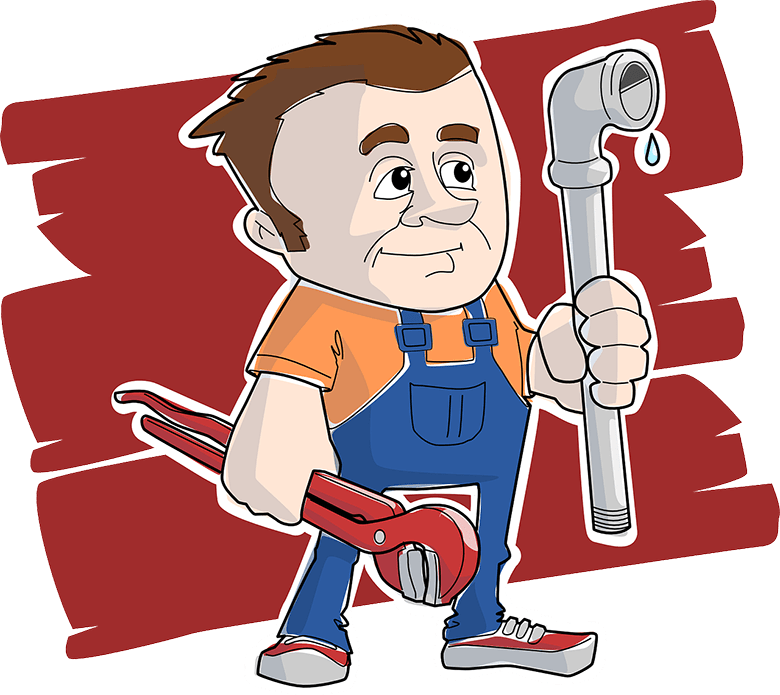Hospital Work in{{lpg_city}} {{lpg_state}}
Hospitals have a variety of unique plumbing components, which all need specific types of services. Numerous regulations and laws guide hospital plumbing systems, so it is essential to have a plumbing service support these massive facilities.
While home plumbing systems usually comprise one comprehensive system, hospitals typically have many significant components. Hospital plumbing systems are unique to healthcare facilities, meaning that they have specific regulations and features.
It can be difficult to troubleshoot these issues, so it is best to have a plumbing specialist help.
Thankfully, Certified Plumbing of Brevard is here to assist hospitals with their various plumbing systems. We have over 33 years of hospital plumbing experience, which we can use to ensure all systems are in working order.
We know that it can be challenging to operate a hospital with a failing plumbing system. Since many daily functions rely on plumbing in a hospital, each part must work for the hospital to function.
As plumbing experts, we want to use our hospital expertise to improve efficiency and keep systems up and running.
Types of Plumbing Systems
A hospital features numerous plumbing components, all of which are essential to the facility’s functioning. These plumbing systems interact via a massive network of pipes and filters, so it is necessary to monitor the system’s health over time.
If steps do not ensure the system is properly functioning, a potential failure could occur, making daily operations difficult.
Most hospitals usually contain a variety of essential systems, including:
- Central Sterile System
- Pathology Lab System
- Sterilizer System
- Hot Water System
- Laboratory System
- Emergency Plumbing System
Each of these systems ensures that a vital part of the hospital can function correctly. If one system fails, it could be catastrophic for the entire facility. This potential for failure is why many laws and regulations state that plumbers must regularly service these systems.
Central Sterile System
A central sterile system is essential for cleaning the hospital’s surgical equipment. Faculty must properly sterilize this equipment between uses, which requires a great deal of hot water. Also, these systems circulate a lot of water, which means they need a large drainage area.
This drainage area must accommodate the waste and water that the system uses throughout the sanitization process.
This system utilizes a variety of essential components, including:
- Backflow preventers
- Hot water heating
- Drainage systems
The water usage in this system fluctuates based on the facility’s needs. At times, water usage can be high, whereas, at other times, it can be much lower. Having a system that can meet these demands is imperative.
The central sterile system is the backbone of the hospital’s plumbing. Without it, hospital staff would not adequately sanitize vital surgical tools and equipment. This system must receive support from frequent maintenance and the facility’s water supply.
Pathology Lab System
Some hospitals feature a pathology lab, which usually requires a particular type of drainage system. Usually, chemicals and waste disposed of in these labs can foam in the water. This reaction subdues with proper anti-foaming agents and parts.
The pathology lab system also has different standards for water quality, which set it apart from the other systems at a hospital. Since chemicals and water are the primary waste products in this system, the infrastructure must accommodate these products.
Depending on the chemicals used, a system could require reverse-osmosis water, which requires a reverse osmosis purification system. This system is vital as it prevents chemical reactions from occurring in the water.
Sterilizer System
While the central sterilizer system is vital for preparing surgical equipment, smaller systems are equally important. These systems are located around the hospital, providing hot, sanitized water directly to the various wings of the hospital.
These sterilizer systems are essential for washing and rinsing equipment, keeping critical tools sanitized and ready for immediate use.
To best function, this system must have the following components:
- Mixing Valves
- Backflow Prevention Devices
- Temperature Controls
In this system, proper temperature is crucial at all times. When water dispenses from a faucet, it must be 160 – 180 degrees Fahrenheit. Temperature is critical because the water this system produces performs vital sanitization functions.
Hot Water System
A hospital also features a domestic water system, which controls the rest of its water usage. The most crucial component of this domestic system is the hot water.
Hospitals can generate hot water via all of the following energy sources:
- Gas
- Steam
- Electric
Gas and steam are by far the most efficient ways to heat water at a hospital. Electric energy usually requires a lot of excess energy, which can be expensive and inefficient.
Standard hot water travels through a series of interconnected pipes to patients, faculty, and visitors. This hot water must be delivered on-demand, with a maximum temperature of anywhere from 100 – 110 degrees Fahrenheit.
To make sure water is hot enough, a variety of different components must control its temperature. These components must be regular maintenance to ensure proper functioning.
Temperature control methods include:
- Mixing valves
- Digital recirculation valves
Depending on the type of setup a hospital has, a plumbing expert may need to service faucets individually or maintain the entire system as a whole. A plumbing service can adequately troubleshoot any temperature issues and trace them to the source, whether in the internal or point-of-use locations.
Laboratory Systems
Laboratory testing requires a dedicated plumbing system to function correctly. An essential element to laboratory plumbing is the backflow prevention device. This device ensures that wastewater does not re-enter the plumbing system once it is disposed of by faculty.
Laboratories have several water requirements, depending on the nature of the work performed.
These types of water include:
- Deionized water
- Reverse osmosis water
These types of water neutralize water, allowing faculty to dispose of any waste products safely. A plumbing system must also purify wastewater from the lab to ensure it does not cause physical or environmental harm once it exits.
Acid-neutralizing systems and the building automation system are just a few ways that a hospital monitors its plumbing. The building automation system is a fail-safe system that notifies staff of any hospital’s plumbing system failures.
Much like every other part of the massive hospital network, staff must moderate these systems to ensure proper functioning.
Emergency Plumbing Systems
Emergency plumbing systems are incredibly vital for the staff of any medical facility. They exist in the case of chemical spills or human exposure to harmful waste products. The Occupational Safety and Health Administration (OSHA) requires that all these systems properly function. They require weekly testing to ensure that all systems are operational.
The emergency plumbing systems usually found in hospitals include:
- Eyewashes
- Face washes
- Emergency shower systems
These systems all have strict regulations regarding water temperature, flow rate, and more. The hospital should perform the necessary weekly testing to ensure these devices are functioning correctly.
Contact Certified Plumbing of Brevard
At Certified Plumbing of Brevard, hospital owners can expect quality results and prompt service. Our team of plumbing specialists is here to help a healthcare facility with its various plumbing needs.
Our customer service and transparency have helped us serve Brevard County’s hospitals and facilities for 33 years. We know our community inside out, and we’d be happy to provide the quality hospital plumbing services Brevard County deserves.
We service hospitals, healthcare facilities, and medical buildings, making it easy for owners to have peace of mind that a plumbing expert will repair their various plumbing systems. The size or scope doesn’t deter us; we offer quality service no matter how large or small the facility is.
We would love to help you with your hospital plumbing system repair and installation needs. To make things easier for you, we offer traditional and 24/7 service. Whether you need a free quote or emergency repair services, our expert team is here to help.
If you have any questions about our hospital services or quotes, you can give us a call at (321) 676-0812. We would love to help you with all of your hospital plumbing needs.
Schedule Repair or Service
Repair Service in Hours, Not Days.
Why Choose Us?
Certified Plumbing of Brevard only hires fully trained and licensed technicians to install and repair virtually any type of plumbing services.


